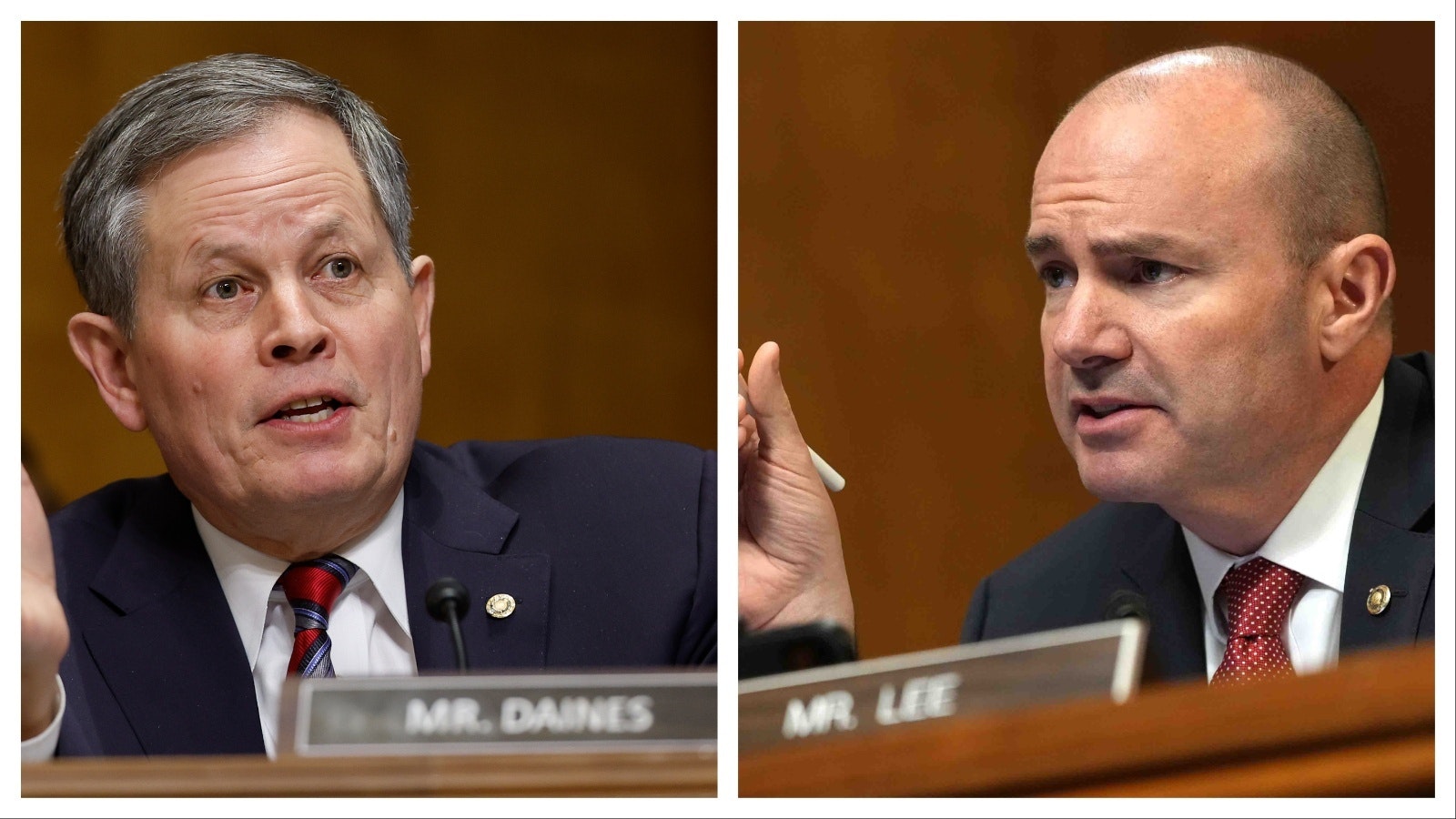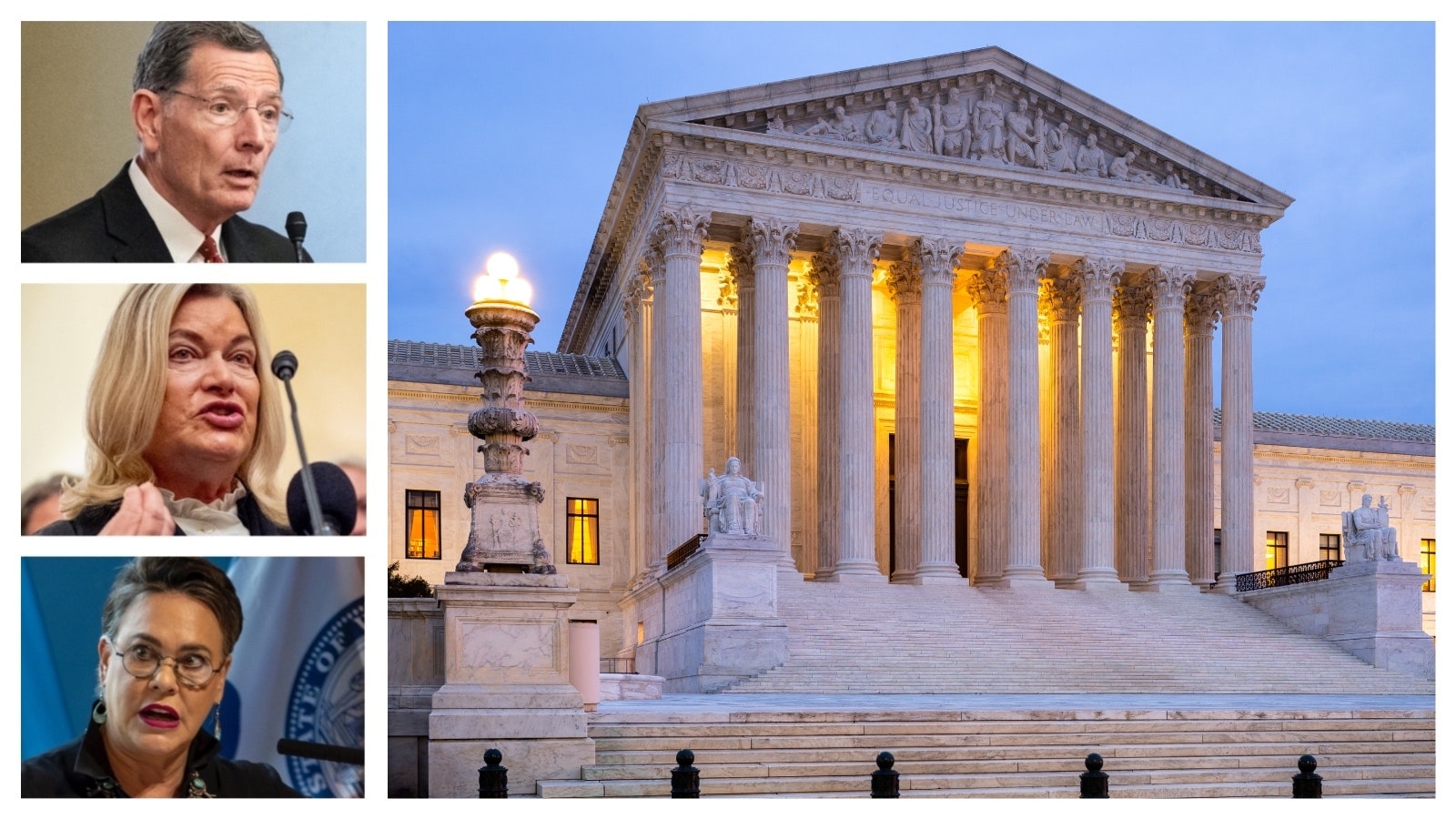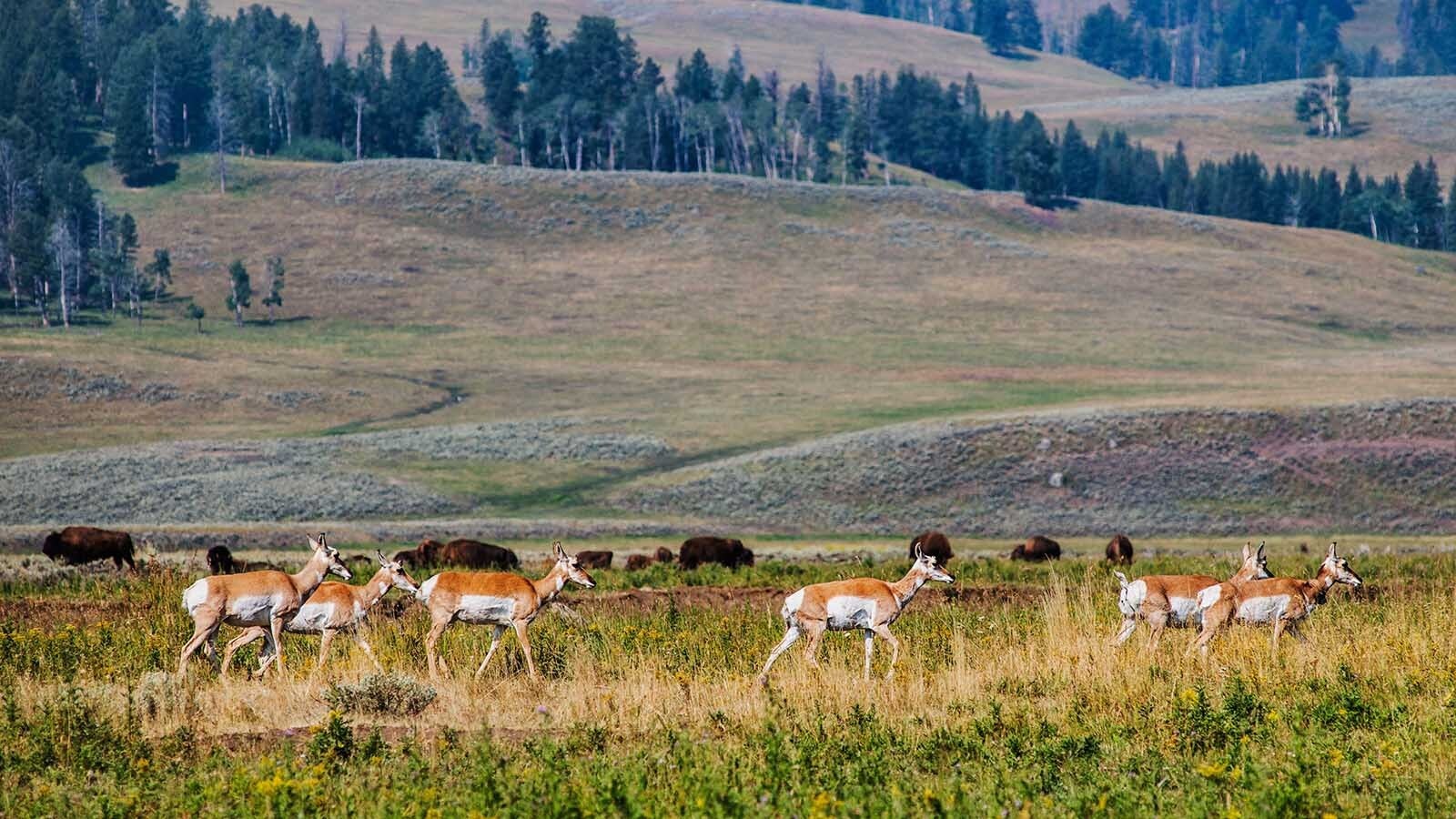U.S. Rep. Harriet Hageman told Cowboy State Daily she found the U.S. Supreme Court’s unanimous ruling Monday that former President Donald Trump cannot be barred from states’ election ballots to be a “common sense decision.”
“What is says is that the states don’t have the right to determine themselves whether someone engaged in an insurrection and are disqualified from being on a national ballot,” Hageman said. “I think it’s a pretty common sense decision.”
On Monday, the justices ruled that the 14th Amendment of the U.S. Constitution does not allow states to prevent Trump from appearing on their presidential ballots for his alleged role in inciting the Jan. 6 Capitol riot.
Politicization
The case arose from a challenge brought by six Colorado voters who sought to disqualify Trump from the ballot for that state’s Republican primary based on the 14th Amendment.
In December, the Colorado Supreme Court ruled in favor of the plaintiffs, but stayed that decision unless the U.S. Supreme Court ruled otherwise. What that means is Trump’s name is already included on the Colorado GOP ballot for Tuesday’s primary election, for which early voting has already started.
“It’s more a reflection on the politicization of the Colorado Supreme Court than anything else because they knew it wasn’t going to stand, but they were willing to deeply bastardize the law, improperly interpret the law, to make a political statement,” Hageman said. “That is not what the Judiciary ought to be doing.”
If the Supreme Court had ruled in the opposite direction, it likely would have upended this year’s presidential election with its ramifications.
Gray Too …
Secretary of State Chuck Gray offered a similar response to Hageman in a press release after the decision was made, calling it a “vindication for the truth and for liberty.”
“I am extremely pleased with the Supreme Court’s decision reversing the Colorado Supreme Court’s repugnant ruling,” Gray said.
Gray had previously filed an amicus brief with the Supreme Court arguing that the court should reverse the Colorado Supreme Court’s decision to bar Trump from its ballots.
Gray, who livestreamed outside the U.S. Supreme Court building on the day of oral arguments Feb. 8, said he was attacked by the “radical left-wing media” and even members of the Wyoming Legislature for doing that.
The latter criticism was likely in reference to a move made by the Joint Appropriations Committee to forbid Gray from filing out-of-state lawsuits with Wyoming money. This was later changed on the House floor to include four of the top five statewide officials, excluding the governor.
Gray also challenged a case filed in Albany County District to prevent Trump and U.S. Cynthia Lummis from appearing on future election ballots in Wyoming. The court rejected the case, which is now being considered by the Wyoming Supreme Court.
Legal Arguments
Although the justices ruled unanimously, they offered different reasons for their final decisions. All of the opinions were focused on legal issues, with none taking a position on whether Trump engaged in insurrection.
The justices all agreed that states cannot bar candidates running for federal office based on Section 3 of the 14th Amendment, which bars insurrectionists from holding office.
A five-justice majority went further, saying that only Congress is responsible for enforcing Section 3 against federal officeholders and that more detailed federal legislation is needed to determine who is disqualified under the provision.
The court’s three liberal justices and Justice Amy Coney Barrett found fault with this position, arguing that it doesn’t relate to the task at hand and “abandons” judicial restraint.
Hageman believes the Colorado Supreme Court knew its ruling would be stricken down by the U.S. Supreme Court.
“It was a political decision issued by the Colorado court,” she said. “They knew it was most likely to be reversed. This was their punch in the eye or punch in the nose to a former president that they don’t like.”
The decision was the court’s most important ruling concerning a presidential election since Bush v. Gore in 2000.
The court will address two other Trump cases later this year when deciding if he is immune from prosecution for his role in the Jan. 6 event, and the scope of a central charge in a federal election-interference case against Trump.
Leo Wolfson can be reached at leo@cowboystatedaily.com.





